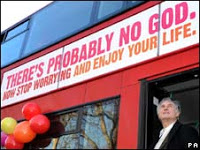We’re a day late on the Oscars thing in Australia, so I’m only just getting to the videos.
I was moved by the acceptance speech of Lance Black, who won Best Screenplay for Milk. He grew up in the Mormon church.
Here’s a transcript of the relevant bit, for those of you who can’t do video.
“I heard the story of Harvey Milk and it gave me hope. It gave me the hope to live my life openly as who I am, and that one day I could even fall in love and get married.
“I want to thank my mom, who has always loved me for who I am even when there was pressure not to.
“But most of all, if Harvey had not been taken from us 30 years ago, I think he would want me to say to all of the gay and lesbian kids out there tonight who have been told that they are less than by their churches or by the government or by their families, that you are beautiful, wonderful creatures of value, and that no matter what anyone tells you God does love you and that very soon I promise you, you will have equal rights federally across this great nation of ours.
Thank you and thank you God for giving us Harvey Milk.”
I grew up as a straight kid in the Mormon church, and they gave us heaps of guilt just over playing with ourselves. I simply can’t imagine what he must have gone through as a gay teenager.
Black’s comments are laudable. If they make some gay person feel like they’re all right despite the attempts of religious bigots to convince them otherwise, then well done. Suicide averted. But there’s a bigger problem here: Black is trying to mitigate the effects of religions without challenging their authority. By taking god as a given, Black unwittingly gives tacit legitimacy to religions as potential sources of moral guidance. In fact, they have no more moral authority than anyone else, and most likely less because of their immoral actions.
It comes down to the whole God thing. Black somehow knows that this mysterious being ‘god’ loves gay people. How does he know that? Is it possible that god really disapproves of them, or perhaps even hates them? How does he know that God ‘gave’ us Harvey Milk? If Satan exists, why didn’t he give us Harvey Milk as a way of deceiving us and making us into homos? Does Black have some magical conduit to heavenly knowledge? If it’s possible to get revelations from a god, how do we know Black has the right idea, and not those nice men in suits that we see in General Conference?
I was re-reading this article again, an interview with Carol Lynn Pearson. She’s a Mormon poet, playwright, and actor. With her one-woman show, Mother Wove the Morning, she’s worked to bring Mother-in-Heaven out of the periphery of LDS doctrine. She’s also an advocate for gay Mormons.
It’s the question Carol Lynn Pearson hears just about every time she appears in public. She heard it again last weekend, during an audience discussion that followed a packed-house performance of her play “Facing East” at Theatre Rhinoceros.
How, one woman asked, could Pearson justify her own membership and involvement in the Mormon church?
…
Pearson, a slim, forthright woman of 67 who wears her silvery white hair jauntily short, nodded along as the question was posed. “I love the Mormon community,” she responded, “and I have a unique opportunity to build bridges.” A number of her church ward leaders, Pearson noted, had attended the opening of “Facing East” the night before. “They’ve been nothing but supportive,” she said. “I believe the Mormon heart is a good heart. I feel comfortable with my role in the Mormon church.“
That was before the LDS Church’s involvement in Proposition 8. I wonder if she still feels ‘comfortable’ being linked with a church that claims divine support for inequality and prejudice. Yes, she seems to do some good, but does she need to do this from inside the organisation? Is she not, in fact, attempting to help those who suffer, while providing a way for them to remain connected to the church that is dishing out the suffering?
There are two approaches you can take in this kind of conflict: reject religion, or attempt to transform religion into something less authoritarian.
The transformative approach is tempting, especially for religious liberals. You get to stay in The Bubble, where it’s comfortable (even though you take some knocks from the orthodox believers), and you get to imagine that someday… some beautiful day… your religion will change from conservative authoritarian to liberal democratic — perhaps even gay-friendly! And you can play a part in this magical process just by making occasional comments in Priesthood Meeting. And then the Millennium comes, and Jesus tells you that you were right all along, and everybody gets a pony.
Needless to say, I think the other approach — to reject religion — is the right one. We need to recognise that there probably isn’t a god, that religious organisations have no special authority to dictate the terms of morality, and that actions like Prop. 8 are signs of their all-too-human origins. This view has the benefit of being true.
I have this disturbing thought that keeps popping up: What if things had gone differently for me, my deconversion somehow hadn’t happened, and I was a believing Mormon in the middle of this Proposition 8 mess? Would it have been a deal-breaker for me? Would I have had the fortitude to recognise the signs of man-made prejudice? Would I have realised that it was time to get out? Or would I have kept making excuses for the Church, like some abused spouse? Would I have imagined things would change… eventually? (We let Blacks have the priesthood, after all! Well, black men.) Would I have fallen back on my old rationalisations: that the Lord is in control, but he allows his servants to make mistakes? Would I have privately disagreed with the Brethren, and fancied myself courageous for doing so?
I worry that, even confronted by an ugliness of this magnitude, I would have remained a liberal Mormon. Dependence on others for your opinion conditions you to be a coward, and I was very well-conditioned. And so I probably would have continued to give my time and my money to an organisation that was actively working against my values, and cared nothing for (in fact, actually disdained) the views of people like myself.
Now, outside the Church, I am free to speak out against injustice and duplicity without having to step carefully around ‘criticising the Brethren’. I get to live a moral, fulfilling life, without the moral conflict of trying to hold two opposing sets of opinions simultaneously.
The LDS Church will carry out actions like Prop. 8 whenever they wish, whether you are a member or not. But if they count you as a member, they do these things with your support. Something to think about.









Recent Comments